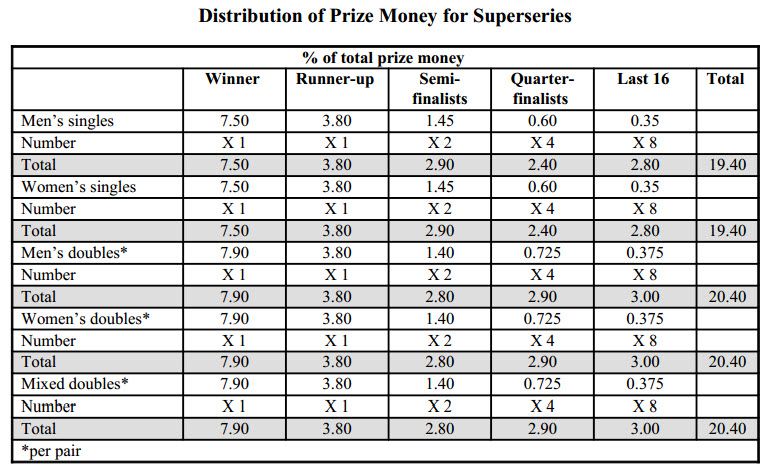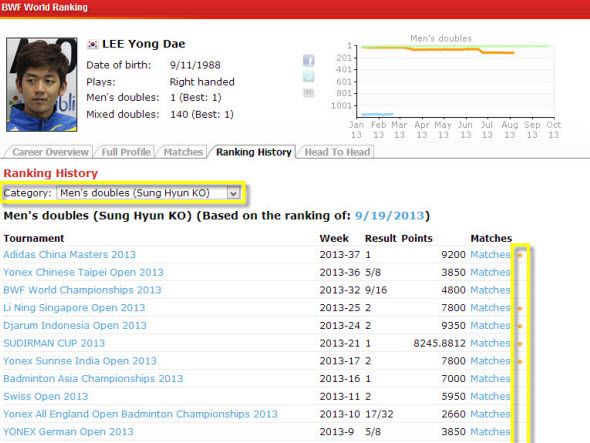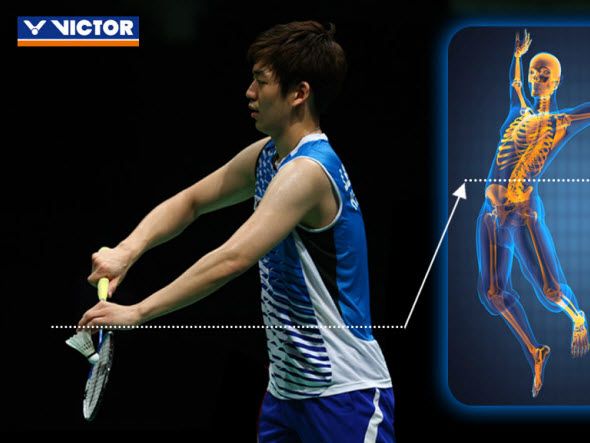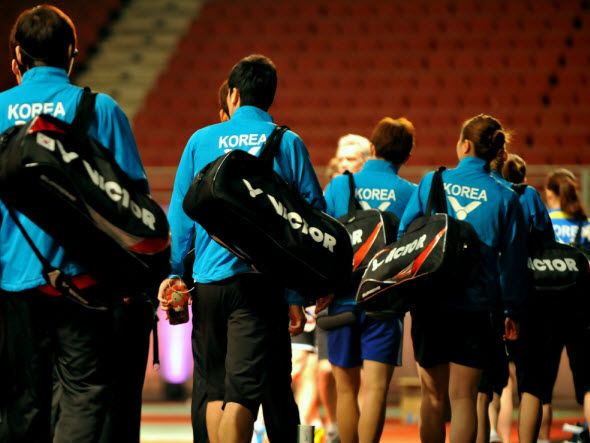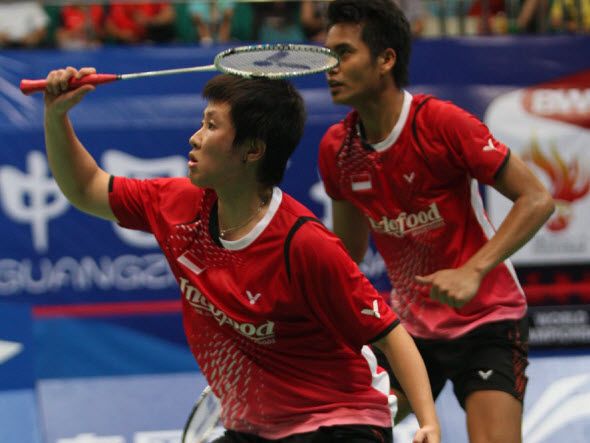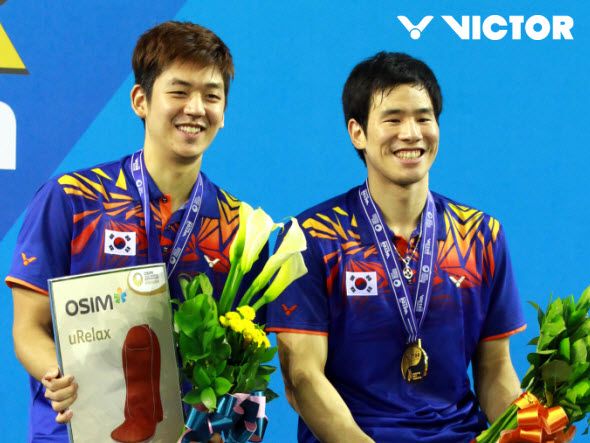The BWF began holding the Super Series tournament series in 2007; 11 badminton associations hold the 12 BWF level 2 tournaments (BWF Tournament Levels). After these 12 tournaments are played, the eight players with the most points in each disciple are invited to take part in the year’s finals at the end of every year.
|
12 Super Series tournaments |
Tournament grade |
note |
|
Korea Open |
Super Series Premier |
* Highest prize money in the series |
|
Malaysia Open |
Super Series |
|
|
All-England Open |
Super Series Premier |
|
|
India Open |
Super Series |
|
|
Indonesia Open |
Super Series Premier |
|
|
Singapore Open |
Super Series |
|
|
China Masters |
Super Series |
* in 2014 be staged by the Australian Badminton Association
|
|
Japan Open |
Super Series |
|
|
Denmark Open |
Super Series Premier |
|
|
France Open |
Super Series |
|
|
China Open |
Super Series Premier |
|
|
Hong Kong Open |
Super Series |
|
|
|
|
Super Series finals |
Super Series tournaments |
* the eight players/pairs who have accumulated the most points in the series are invited to take part in the annual finals.
|
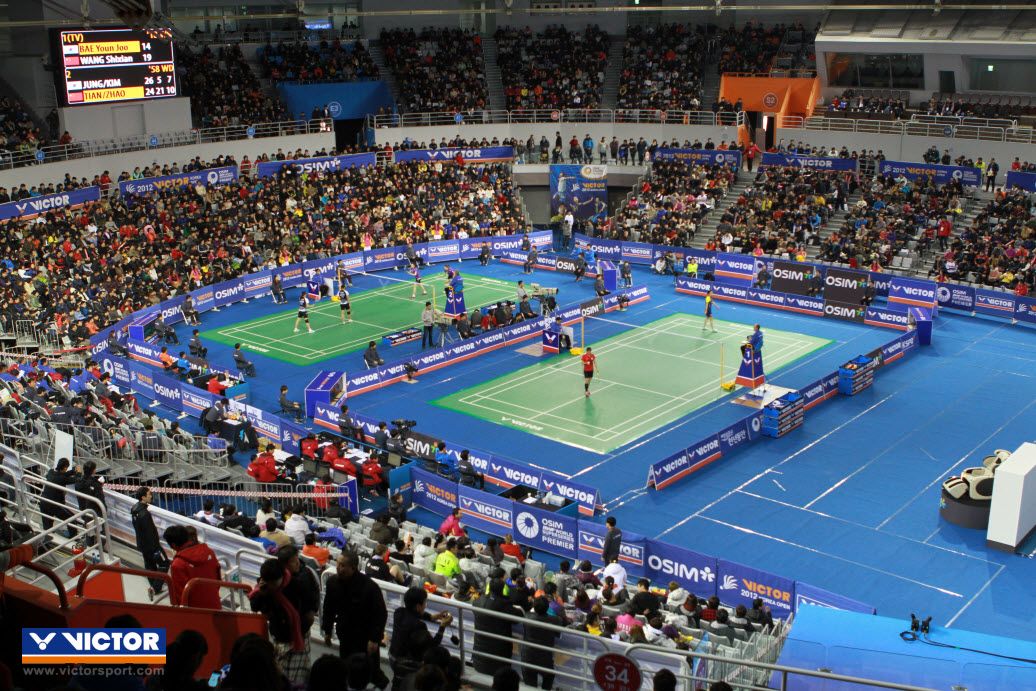
The venue for the VICTOR Korea Open Super Series Premier tournament
The biggest prize money in the Super Series
From 2013, the BWF has stipulated that the total prize money for a Super Series tournament has to be over US$200,000 and US$400,000 for a Super Series Premier tournament. The largest amount of prize is offered by the Korea Open Super Series Premier, US$1 million in 2013.
The BWF hopes to attract the world’s best players to take part in the Super Series events by offering a large amount of prize money thus making them more exciting and making more badminton fans pay attention to international badminton tournaments.
It has been reported that 2014-2017 the BWF will increase the amount of prize money on offer at Super Series tournaments once again, with the five Premier tournaments set to offer US$500,000 in prize money in 2015 and 2016, US$550,000 in 2016 and US$600,000 in 2017, while the prize money for the seven Super Series tournaments will go up by US$25,000 a year. If all goes well, by 2017 every Super Series tournaments will offer at least US$350,000 in prize money.
Distribution of Super Series prize money
The prize money for Super Series tournaments is distrusted according to fixed percentages to the top 16 players/pairs. This percentage differs for singles and doubles and player/pair final placing. (the stage of the tournament reached)
For details of prize money distribution percentages, refer to the comparison table issued by the BWF, shown below.
Tournament points and world ranking
The BWF implemented a new world ranking system in 2007. Any player who achieves a certain level of result in a BWF tournament above level 3 receives corresponding points and these points affect the world ranking of the player in each discipline.
Principle of winning points:
|
1. |
The higher the level of the tournament the greater the number of points won (example:the number of points won by the winner of the men’s singles at the Korea Open Super Series Premier will be more than those won by the winner at the Malaysia Open Super Series) |
|
2. |
The higher a player finishes in a tournament the greater the number of points they win (example: the men’s singles winner at the Korea Open Super Series wins more points than the runner-up) |
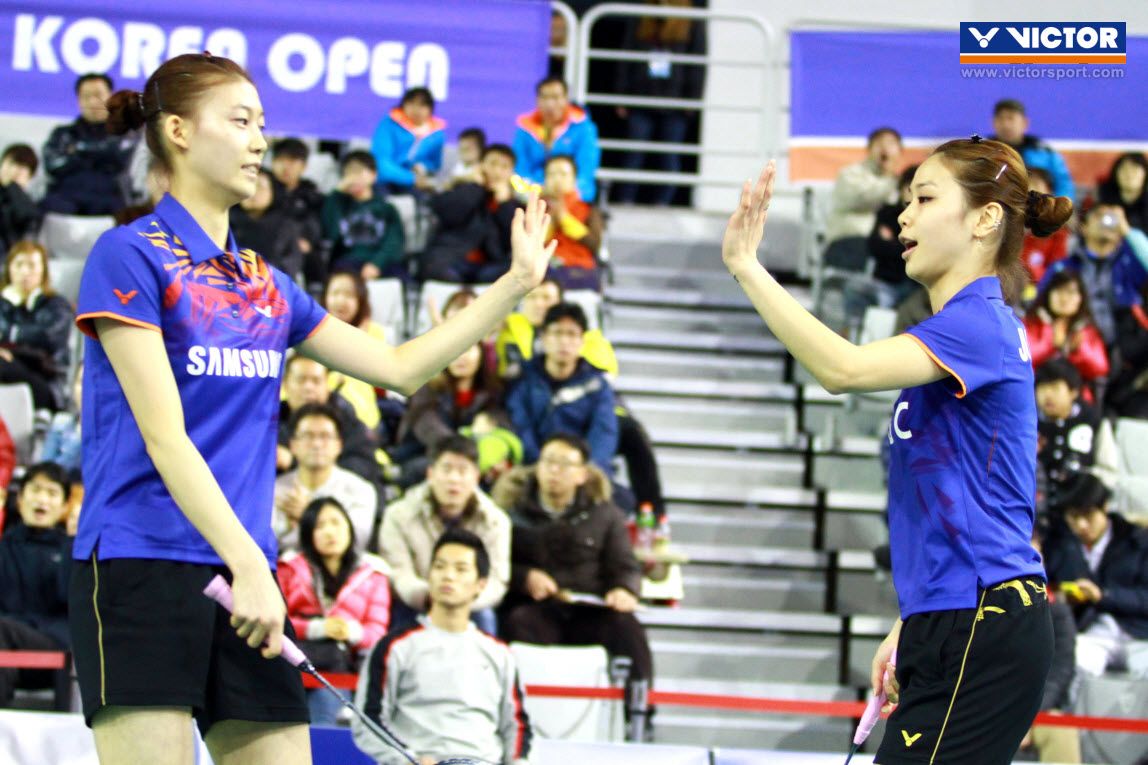
VICTOR stars Kim Ha Na/Jung Kyung Eun at the 2013 Korea Open Super Series Premier
Super Series-qualification
According to BWF regulations, of the players who enter a Super Series tournament, the 28 top ranking players/pairs in each discipline have the right to go straight into the tournament itself. Those ranked 29-44 play in the qualifying rounds, the top four in which can play in the tournament proper (This means, if a player enters the women’s singles at the Korea Open but she is ranked 45th in terms of world ranking of all the players who have entered, her entry might be rejected.)
In addition, in each disciple, the eight players/pairs with the highest world ranking are seeded. The seeded players are in different areas of the draw so they won’t meet each other before the quarter final stage. This is intended to make the matches from last eight stage more interesting.
Super Series-duration of tournament
Every Super Series tournament last seven days. Generally speaking the tournaments are played Monday to Sunday. The first day is practice day, the second day the qualifying tournament, with the five days of actual competition starting on the third day.
Super Series-Umpires
The BWF is very careful with regards Super Series umpires. Each tournament must have at least six umpires who are not host country nationals, and four of the six must be BWF certified umpires, while the remaining two must be continental federation certified.
Such high quality umpire teams allow spectators to enjoy the highest quality international tournaments.
Super Series-Obligations of players
To maintain the excitement and appeal of Super Series tournaments the BWF has formulated a series of player obligations. The aim is to ensure the top players play in Super Series tournaments so that each tournament is exciting and is talked about.
Related regulations are as shown below::
|
1. |
The world top 10 ranked players/pairs must take part in the Super Series Premier tournaments. |
|
2. |
The world top 10 ranked players/pairs must take part in at least four Super Series tournaments. |
|
3. |
All players who qualify for the annual finals of the Super Series must play. |
|
4. |
Any player in breach of any of these rules will be fined US$5000 by the BWF or given more stiff punishment by the BWF's Disciplinary Committee. |











